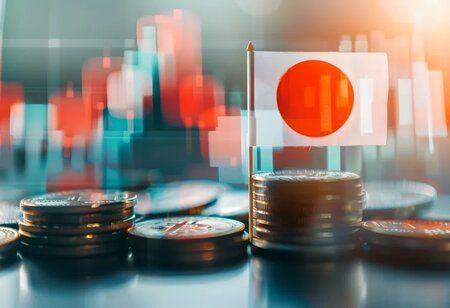By Global Consultants Review Team
 Japan's core inflation accelerated in March due to persistent increases in food costs, according to data released on Friday, complicating the central bank's task of balancing rising price pressures with risks to the economy from higher US tariffs.
Japan's core inflation accelerated in March due to persistent increases in food costs, according to data released on Friday, complicating the central bank's task of balancing rising price pressures with risks to the economy from higher US tariffs.
The data comes ahead of the Bank of Japan's policy meeting next week, when the central bank is expected to maintain interest rates at 0.5% while cutting growth forecasts as U.S. President Donald Trump's steep tariffs cloud the economic outlook.
The core consumer price index (CPI), which includes oil products but excludes fresh food prices, increased 3.2% in March from the previous year, matching a median market forecast and accelerating from a 3% increase in February.
Core inflation has now exceeded the BOJ's 2% target every month for the past three years, indicating rising price pressure as companies continue to pass on rising raw material and labor costs.
Inflation, as measured by an index that excludes the effects of both fresh food and fuel costs and is closely monitored by the BOJ as a broader price trend indicator, increased to 2.9% in March from 2.6% in February.
Households saw price increases for a variety of items, including gasoline, hotel bills, and chocolates. In March, rice prices rose 92.5% from the previous year's levels.
The impact of rising living costs on consumption will complicate policymakers' efforts to quantify the potential damage from higher US tariffs, which threaten to derail Japan's export-reliant economy.
"The recent U.S. tariff measures affect various industries and heighten uncertainty," Finance Minister Katsunobu Kato told Reuters on Thursday, the government's strongest warning yet as the two countries begin trade talks. "We're deeply concerned they could affect Japan's economy, as well as the global economy."
Stubbornly high food prices and rising wages have kept consumer inflation above the BOJ's 2% target, supporting market expectations that the central bank will continue to raise interest rates from the current 0.5%.
However, Trump's tariff plans have jolted financial markets and fueled fears of a global recession, making it unclear whether the BOJ can continue raising interest rates.
BOJ Governor Kazuo Ueda said on Thursday that the central bank would continue to raise interest rates while remaining vigilant in the face of sharply increased economic uncertainty caused by US tariffs.
Despite a 90-day postponement of plans for broad tariffs on goods imported into the United States, Washington has maintained 25% tariffs on aluminum, steel, and automobiles, as well as a blanket 10% tariff on imported goods.
We use cookies to ensure you get the best experience on our website. Read more...